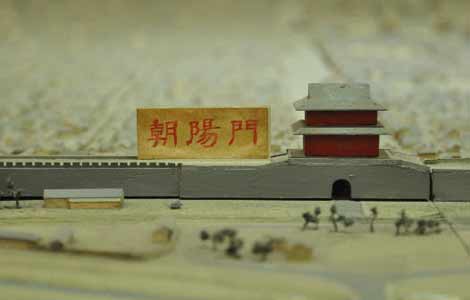Electricity: a curiosity no longer
Updated: 2013-08-26 06:57
By Wang Huazhong (China Daily)
|
|||||||||||
When Chen Xianxiu opened the first electrical-appliance store in Medog in the Tibet autonomous region in November 2010, she received not only customers through her doors, but curious onlookers.
"Many of the senior people had never seen a refrigerator. They opened it and touched the ice inside," says the 47-year-old from Sichuan province.
"Some children came in and asked me, 'How much is it?' I didn't know how to answer them."
Roadless history
Medog was the last county without a road in China. Heavy snow in winter and rains in summer caused geological hazards, leaving a track only accessible for three to four months a year before 2010.
Goods were mostly shipped in on the backs of horses and people.
The traffic was mostly for necessities; bulk and heavy electronic appliances had very few chances to be moved in.
Chen and her husband arrived in Medog in 2007. Her husband is an electrician, and runs a repair shop.
There were very few electronics and therefore little need for their services according to Chen. The shop normally altered reverse-engineered electric motors into hydro generators.
"Another reason we don't have electronic appliances is insufficient power supply. You may find what you spend a lot effort bringing in becomes useless in the county," Chen says.
Power bump
In 2009, power coverage was only 22 percent in the county seat, which has only one power station with a capacity of just 200 kW.
Yang Xingfu, a local official from Guizhou province, says road lamps were not functioning then, and every household had an adjustable transformer.
"In festival or holiday seasons, you have to connect one transformer to another to raise voltage high enough to turn on a TV," Yang says.
At the end of 2010, a hydro power station with a capacity of 1,000 kW that cost 29.56 million yuan ($4.83 million) was put into operation.
Meanwhile, the Galung La Tunnel that bypasses heavy snow areas was opened in December 2010, allowing the road to be used eight months a year.
Chen thought it was a good time to open the store.
"My business is good thanks to the tunnel. I can simply call storage in Nyingchi and trucks can pick up the goods and deliver them to my store," she says.
Chen says the refrigerator is her best seller.
Her store sold 300 washing machines a year in 2011 and 2012. Her husband was in charge of after-sales service.
"I believe the road will get better and better. Medog is one of our border towns, the nation is sure to build it well."
wanghuazhong@chinadaily.com.cn
Today's Top News
Report of starving Chinese crew members proves untrue
Joint sea drill shows improved ties
Rainstorms and floods wreak havoc
Experts call for details on rumor cases
Market regulators need to fix loopholes
UN to probe alleged chemical attack
Bo insists he did not abuse power
Using stray cats for rat control sparks debate
Hot Topics
Lunar probe , China growth forecasts, Emission rules get tougher, China seen through 'colored lens', International board,
Editor's Picks

|

|

|

|

|

|





